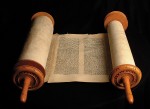
And so it is to Jerusalem that Jesus must go. Why Jerusalem? How would the scene have played out differently if the Pharisees, in their plotting, had simply arranged to have Jesus murdered on the road – on his way to the city? What if Jesus had never come to Jerusalem? To the temple? What if he died and even was resurrected while preaching the good news of God’s Kingdom in Galilee? What’s so special about Jerusalem?

Herod was scared of a newborn baby. This basic fact of the Epiphany story bears the key to understanding its political implications. Herod’s fear reveals something of the anxiety that accompanies absolute power. In the political context of the Roman Empire, which supported Herod’s control of Judea, the continuance of power depended on the political elites capacity to convince people.

Is God a Socialist? And if so, what kind of socialism does God espouse?

For three weeks now, I have been listening to Mary’s Magnificat sung as a part of the mid-week evening prayer service in my congregation. Last week, I leaned over to my five-year-old and told her, “This is the story of Jesus’ Mommy when she was pregnant with him.” Rereading a paper that I wrote on this text in college, I critiqued an over spiritualization of these words that are “a vivid proclamation of God’s eternal justice and intention to uplift the weak and lowly in a ministry of love…a call to social action on behalf of humanity.” Now, as I sit with the text, I can only say that it is all of this and more…

It is a challenge to reflect on politics and advent together. As advent emerges and we begin to anticipate the emergence of God’s presence into the world anew, as we expect the child who taught peace and preached liberation for the poor and oppressed, I cast my eyes on the political landscape and struggle to glimpse what might be breaking forth with new life. Perhaps this is a problem with how we conceptualize the birth of Jesus, as a grand cosmic event, an episode of a preordained salvation history, the inauguration of a new kingdom of peace on earth. There is another element to this extraordinary story, its ordinariness. Jesus is born in a Galilean backwater, to an unwed teen mother, lost in a crowd of travelers. Jeremiah prophesied to his ancient community about a time when justice and righteousness will emerge into history. We still await the fulfillment of this prophesy. But refracting this vision through the circumstances of Jesus’ birth will perhaps teach us to look for this hope in unexpected places…

Increasingly in liturgical circles it is becoming politically incorrect to talk about the “kingship” of Christ. Such a term now brings with it all the baggage of patriarchal interpretations of the biblical text. It calls to mind the exploitation brought about by colonial powers, abuses of power at the hands of politicians, and perhaps every abuse of power—abuses which represent heinous tragedy and sin. However, while we lament such abuse it is important to remember that power, in political terms, is itself neutral. It is a gift given by God in creation, which when wielded in the hands of human beings can be used for either selfish or selfless purposes (usually with correspondingly negative or positive results). Unfortunately, too often we as human beings struggle to monopolize power for our own sakes and consequently abuses occur…

In contemporary Western society we like to pride ourselves on having done away with what we would term ‘archaic’ systems, such as slavery. And so, when we hear such a system mentioned or even alluded to in a text like John 8:31-36, it is easy to write Jesus’ words off as anachronistic to our more ‘civilized’ approach. If we’re among the majority of such Westerners who know of no slavery in our ancestral background (or, if we do, whose ancestors were the slaveholders), then we may be tempted to object with Jesus’ disciples:
“‘We are descendants of Abraham and have never been slaves to anyone. What do you mean by saying, “You will be made free”?’” (8:33)
The first disciples resisted Jesus’ slave imagery, but not without irony. After all, the children of Abraham with whom they identify are the same children of Jacob who traveled to Egypt and were made slaves. Moses and Aaron led their ancestors through the wilderness so that they—the disciples, all the Jews, and by extension believers today—are children of the exodus; children for whom the reality of slavery is very real and near. And yet they resist this, practicing a form of selective amnesia rather than think of themselves as slaves.

It seems easy. So easy we can almost brush it off. Smile approvingly at the Sunday School teacher seated across the aisle from us in worship, and check one more thing off our spiritual to-do-list. Welcome little children? Done. We might ask ourselves, “How dense could these power grubbing disciples have been to miss so simple a point as this?”
But take a look across that same aisle once again… If your church is like many, there may be an usher giving a mother a dirty look as she walks her small child to the bathroom. Or a father putting his finger to his lip, afraid that his toddler’s whispers might disrupt someone. Or maybe a middle-aged gentleman checking the church’s giving record, calculating in his head what percent of the church’s income comes from his check. Or a young woman dressed just so, glancing at a hand mirror to check her make up….